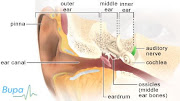The heart has an internal electrical system that controls the rhythm of the heartbeat. Problems can cause abnormal heart rhythms, called arrhythmias. There are many types of arrhythmia. During an arrhythmia, the heart can beat too fast, too slow, or it can stop beating. Sudden cardiac arrest occurs when the heart develops an arrhythmia that causes it to stop beating. This is different than a heart attack, where the heart usually continues to beat but blood flow to the heart is blocked.
There are many possible causes of cardiac arrest. They include coronary heart disease, heart attack, electrocution, drowning, or choking. There may not be a known cause to the cardiac arrest.
Without medical attention, the person will die within a few minutes. People are less likely to die if they have early cardiopulmonary resuscitation (CPR) and defibrillation. Defibrillation is delivering an electric shock to restore the heart rhythm to normal.
Friday, December 26, 2008
Friday, December 19, 2008
Carbon Monoxide Poisoning
Carbon monoxide (CO) is a gas that has no odor or color. But it is very dangerous. It can cause sudden illness and death. CO is found in combustion fumes, such as those made by cars and trucks, lanterns, stoves, gas ranges and heating systems. CO from these fumes can build up in places that don't have a good flow of fresh air. You can be poisoned by breathing them in. The most common symptoms of CO poisoning are
* Headache
* Dizziness
* Weakness
* Nausea
* Vomiting
* Chest pain
* Confusion
It is often hard to tell if someone has CO poisoning, because the symptoms may be like those of other illnesses. People who are sleeping or intoxicated can die from CO poisoning before they have symptoms. A CO detector can warn you if you have high levels of CO in your home.
* Headache
* Dizziness
* Weakness
* Nausea
* Vomiting
* Chest pain
* Confusion
It is often hard to tell if someone has CO poisoning, because the symptoms may be like those of other illnesses. People who are sleeping or intoxicated can die from CO poisoning before they have symptoms. A CO detector can warn you if you have high levels of CO in your home.
Friday, December 12, 2008
Cancer Alternative Therapies
You have many choices to make about your cancer treatment. One choice you might be thinking about is complementary and alternative medicine (CAM). CAM is the term for medical products and practices that are not part of standard care. Standard care is what medical doctors, doctors of osteopathy, and allied health professionals, such as registered nurses and physical therapists, practice. Alternative medicine means treatments that you use instead of standard ones. Complementary medicine means nonstandard treatments that you use along with standard ones. Examples of CAM therapies are acupuncture, chiropractic, and herbal medicines.
CAM treatments do not work for everyone, but some methods such as acupuncture might help with nausea, pain and other side effects of cancer treatment. In general, researchers know more about the safety and effectiveness of standard cancer treatments than they do about CAM. To make sure nothing gets in the way of your cancer care, talk to your doctor before you try anything new.
CAM treatments do not work for everyone, but some methods such as acupuncture might help with nausea, pain and other side effects of cancer treatment. In general, researchers know more about the safety and effectiveness of standard cancer treatments than they do about CAM. To make sure nothing gets in the way of your cancer care, talk to your doctor before you try anything new.
Subscribe to:
Posts (Atom)




